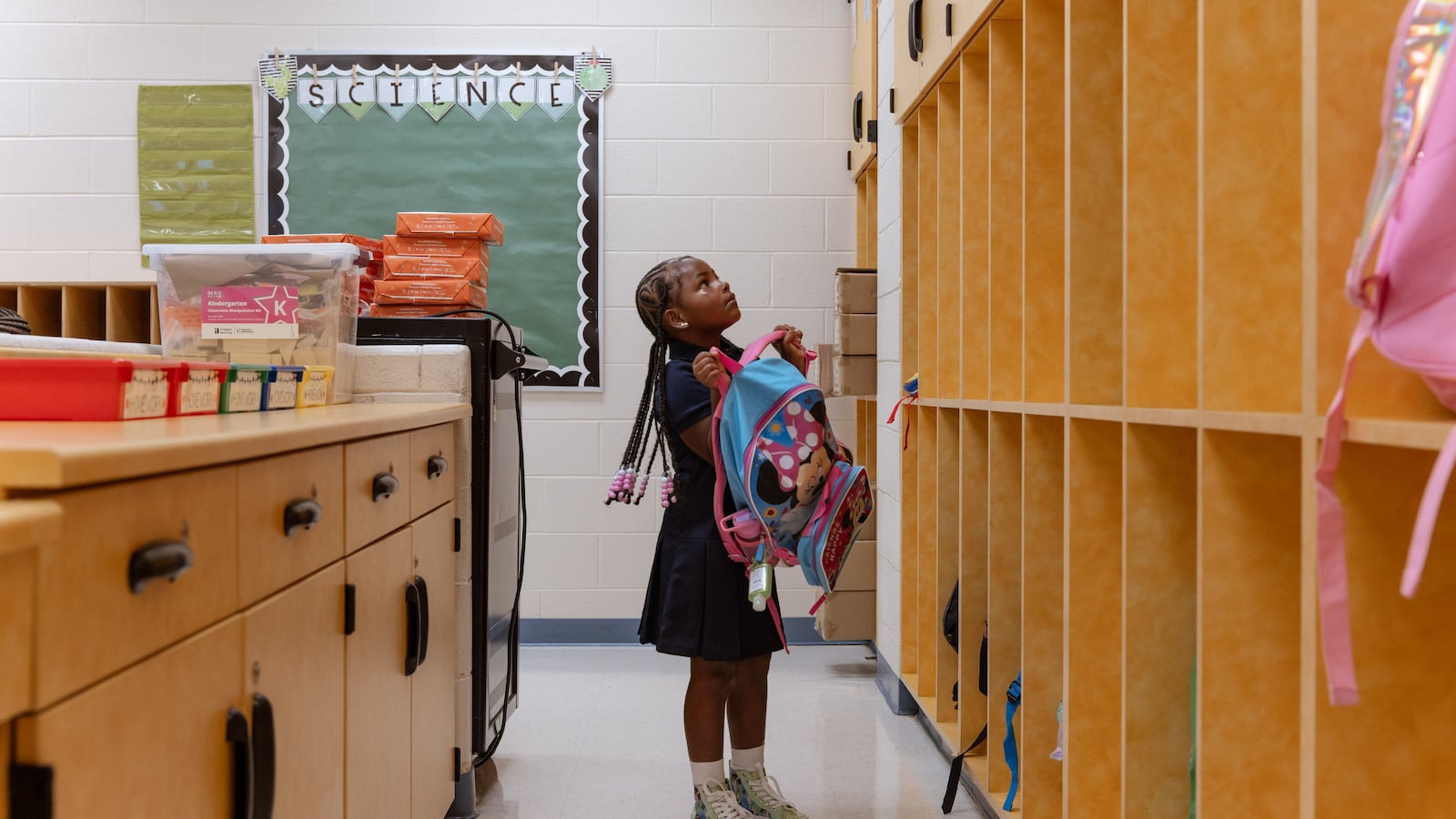This story is featured in Chalkbeat’s 2023 Philadelphia Early Childhood Education Guide on efforts to improve outcomes for the city’s youngest learners. To keep up with early childhood education and Philadelphia’s public schools, sign up for our free newsletter here.
For thousands of Philadelphia families, access to reliable, high-quality early childhood education is a priority.
Luckily, all 3- and 4-year-olds living in the city are eligible for free pre-K through the school district and through the city’s free preschool program, PHLpreK.
This year, Chalkbeat has created a guide featuring stories that take a political and personal look at early childhood education in Philadelphia and an explainer to walk new parents through the pre-k application process.
In our guide, reporter Nora Macaluso looks at a new movement towards “playful learning” that considers how important fun and enjoyment can be for early learners. We sat down with outgoing Mayor Jim Kenney to reflect on his pre-K legacy in Philadelphia, and we also spoke with kindergarten teacher Sarah Budlow, who shared how her pandemic education inspired her to become an educator herself.
This year, more than 5,000 children are enrolled in PHLpreK, according to a report from Kenney’s administration. Another 11,000 students are enrolled through the school district.
Milagros Nores, co-director for research at the National Institute for Early Education Research, observed some 285 Philadelphia pre-K classrooms last spring and told Chalkbeat the quality was comparable with similar programs she’s studied in other states. But she said there was room for growth, especially when it comes to teacher and staff training.
Nores said now that the program has incorporated more professional development and embedded coaching, it will likely improve.
But those improvements will depend on political will. Kenney made PHLpreK the centerpiece of his education agenda, but it’s unclear if mayor-elect Cherelle Parker will maintain it, expand it, or change it when she takes the helm. A spokesperson for Parker declined to comment on the issue.
Amid that uncertainty, providers are warning of an impending mass exodus from the field. Some early childhood education advocates in Philadelphia and statewide say their sector is “on the brink of a breakdown.”
Carol Austin, executive director of First Up, an advocacy group that provides training and accreditation assistance to early childhood educators and organizations, told Chalkbeat the biggest challenge facing Philadelphia early childhood programs is underfunding.
That lack of funding at the top causes a ripple effect that means early childhood workers are often underpaid. As a result, caregivers are leaving the field, which creates more work and pressure for those who remain.
In Philadelphia County, the estimated full-time hourly rate for early childhood teachers was $14.37 for annual earnings of $29,884, as of the most recent earnings data from 2021.
“People are leaving the field because it’s so stressful,” Austin said. “They can make more money at Target.”
Austin said that like their peers in K-12 classrooms, early childhood staff are also seeing more students, including toddlers, grappling with challenging behaviors in the wake of the pandemic. In some cases, Austin said, those students would be better served by having more and better-trained teachers and support staff in the classroom. But that requires more funding.
“If we could pay educators and staff what they deserve, we wouldn’t be dealing with this cycle,” Austin said.
Barbara Chavous-Pennock, CEO of Somerset Academy Early Learning Center in North Philadelphia, said finding adequate space, quality teachers, enough funding, and necessary support for students from marginalized communities is getting more difficult every year.
But Chavous-Pennock said she’s hopeful the city can expand and streamline the free pre-K programs it has.
“The greatest thing that I think we falter from as a city is that we have tremendous programs, we have dollars, we even sometimes have political will,” Chavous-Pennock said, “but we talk to each other in silos. We are not sitting together, we are not working together.”
Carly Sitrin is the bureau chief for Chalkbeat Philadelphia. Contact Carly at csitrin@chalkbeat.org.

